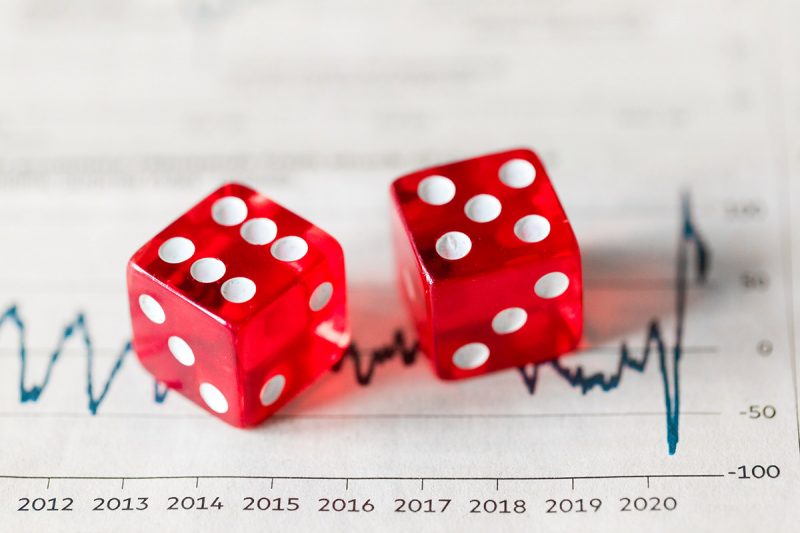Why luck is not a good investment strategy
The simple maths of trying to beat the market guarantees that – after costs – the majority of investors, including professional fund managers, will fail to achieve the return that the market offers, as trading stocks (or bonds) is a zero-sum game.

In other words, every winning trade relative to the market must be funded by the losses on the other side of the trade. Not everyone can win.
This can be surprising to some. Surely highly paid, intelligent, hardworking, ambitious fund managers with vast resources available to them should be able to outsmart other investors? With the advent and popularity of market tracking index funds, however, weaker investors – including professionals – will have exited the game, leaving the now higher quality pool of survivors competing among themselves for winning trades.
The bar has been raised significantly. Surely there must be a few great managers out there? Maybe, but identifying them is extremely challenging, contrary to popular belief.
Some investors may be tempted to think that they, or their adviser, are able to avoid the losers and pick winning funds. Without the benefit of 20/20 hindsight, or a large dose of luck, finding a winning manager is well-nigh impossible, as a vast body of empirical research suggests.
As Jack Bogle, the legendary investor and founder of low-cost investment company Vanguard, used to say:
‘Don’t look for the needle in the haystack. Just buy the haystack [ie the market]’
Many studies show that short-term performance rarely persists. In other words, funds that perform best in one period rarely carry on this ‘good’ performance, at least with no greater frequency than we would expect simply from by luck.
Most attempts at fund picking by individuals – or the advisers they pay to do this on their behalf – use three-to-five year performance data, which means it is almost statistically impossible to tell skilled managers from the noise of the markets. Luck will largely drive outcomes, good or bad.
Even if a fund manager beats the market over a longer timeframe, it does not automatically mean that they are skilled. To separate skill from luck, studies have shown we need at least 16 years of data to be 95 per cent sure that we are looking at the former rather than the latter.
Not very many fund management firms can provide a historical track record that is representative of the team and process currently in place. That raises a number of pertinent questions investors should ask themselves. Is it really possible to extrapolate past success into the future? On what basis would one take this risk? Will the current manager be around in the future?
Without a crystal ball, the odds of picking a skilled, market-beating fund manager for the years ahead is pretty low. There may be some out there, but identifying them today is a real challenge, with a potentially costly downside.
Fund selection based on luck is not a good investment strategy. Play the odds in your favour and pick up the market returns you deserve.


